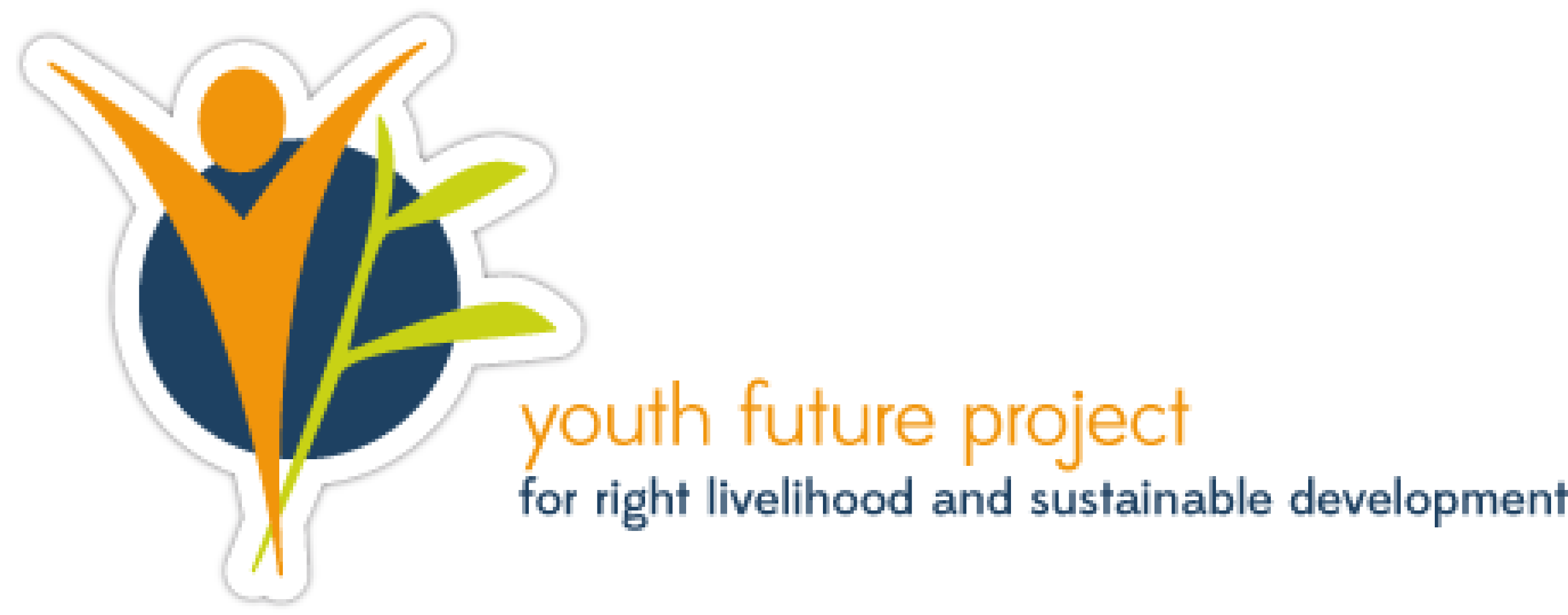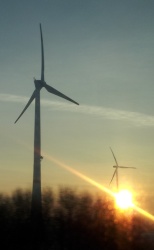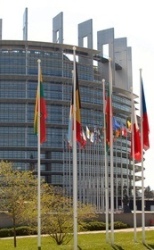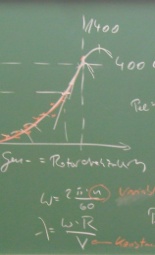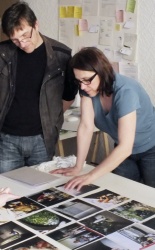Ursprünglich wollten wir diesen Workshop zum Thema „Fracking“ anbieten. Jedoch stießen wir bei der Vorbereitung auf sehr widersprüchliche Informationen verschiedener Lobbygruppen. Dies gab den Anlass „Umweltobbyismus“ zum Thema des Workshops zu machen.
Zwiespalt zwischen Notwendigkeit und moralischer Vertretbarkeit –
auf der Suche nach Wahrheit im Dschungel von widersprüchlichen Informationen
Politische Entscheidungen bedeuten gewinnen und verlieren. Eine Interessengruppe gewinnt, eine andere verliert. Um zu den Gewinnern zu gehören, versuchen Interessensverbände die Entscheidungsträger zu ihren Gunsten zu beeinflussen. Mit vielfältigen Mitteln und Methoden.
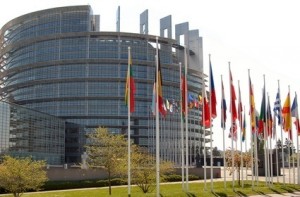 Dieses Szenario wiederholt sich jeden Tag. Auf kommunaler, nationaler Ebene sowie besonders auf EU-Ebene. Von Automobilbranche über Textilbranche und landwirtschaftlichen Verbänden bis hin zu Umweltschutzorganisationen: Das Volk wird gemäß der eigenen Interessen informiert, die Parlamentarier ebenso, machmal erhalten die sogar noch Geschenke.
Dieses Szenario wiederholt sich jeden Tag. Auf kommunaler, nationaler Ebene sowie besonders auf EU-Ebene. Von Automobilbranche über Textilbranche und landwirtschaftlichen Verbänden bis hin zu Umweltschutzorganisationen: Das Volk wird gemäß der eigenen Interessen informiert, die Parlamentarier ebenso, machmal erhalten die sogar noch Geschenke.
Aktuell erleben wir intensiven Umweltlobbyismus und den klaffenden Zwiespalt zwischen den Darstellungsweisen konkurierende Interessensgruppen beim Diskurs über die Erdgasfgewinnung durch Fracking (hydraulic fracturing).
 Doch wie viel Macht haben die einzelnen Interessengruppen auf die tatsächliche Entscheidungsfindung? Haben wirtschaftliche Argumente mehr Einfluss als Aspekte der Nachhaltigkeit und des Umweltschutzes? Steht die Lobby von Industrie und Wirtschaft einer nachhaltigen Entwicklung im Wege?
Doch wie viel Macht haben die einzelnen Interessengruppen auf die tatsächliche Entscheidungsfindung? Haben wirtschaftliche Argumente mehr Einfluss als Aspekte der Nachhaltigkeit und des Umweltschutzes? Steht die Lobby von Industrie und Wirtschaft einer nachhaltigen Entwicklung im Wege?
Und in wieweit ist JEDER VON UNS betroffen? Was können wir noch glauben? Wie viel Einfluss hat Lobbyismus auf die öffentliche Meinung – auf unsere eigene? Wer schreibt die Informationen denen ich glauben schenke?
Nimmt man das Beispiel Fracking, so endet die Recherche meist auf Seiten der Erdölindustrie oder deren Gegnern. Neutrale Informationen zu finden, scheint fast unmöglich. Das Thema polarisiert die Öffentlichkeit und die Politik. Eine sachliche Diskussion über Vor- und Nachteile lässt sich mangels neutraler Informationen kaum führen. Kann man auf einer solchen Grundlage wichtige politische Entscheidungen treffen?
Workshop
In diesem Workshop wollen wir genauer auf das Thema Lobbyismus in der Umweltbranche eingehen:
- Was ist Lobbyismus? – Wo fängt er an?
- Ist Lobbyismus moralisch vertretbar, in einer demokratischen Gesellschaft tolerierbar?
- Wie viel Einfluss hat er wirklich?
Wir werden uns nicht nur mit theoretischen Hintergründen beschäftigen, sondern mit Parlamentariern, Lobbyisten und Lobbyismus-Gegnern ins Gespräch kommen.
- Auf welcher Grundlage treffen Politiker Entscheidungen, wenn ihnen nur beeinflusste Informationen vorliegen?
- Müssen wir die Umweltverbände stärken? Braucht die Umwelt eine stärkere Lobby?
- Ist es überhaupt vertretbar, dass Umweltverbände Lobbyismus einsetzen? Gibt es andere Wege auf (politische) Entscheidungen Einfluss zu nehmen?
- Arbeiten Lobbys aus verschiedenen Branchen mit unterschiedlichen Mitteln?
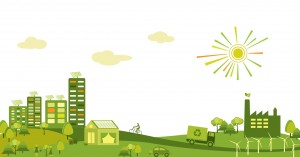 Wir stellen die verschiedenen Meinungen gegenüber – erleben die Kontroverse und suchen den Mittelweg bzw. unseren eigenen Standpunkt. Jede/r TeilnehmerIn wird zur aktiven MitgestalterIn des Workshops! An aktuellen Beispielen wie Fracking, Endlagerstätten für radioaktives Material und Beispielen, die Du mitbringst stellen wir die gegebenen Informationen der unterschiedlichen Interessengruppen gegenüber und untersuchen sie auf ihren Wahrheitsgehalt!
Wir stellen die verschiedenen Meinungen gegenüber – erleben die Kontroverse und suchen den Mittelweg bzw. unseren eigenen Standpunkt. Jede/r TeilnehmerIn wird zur aktiven MitgestalterIn des Workshops! An aktuellen Beispielen wie Fracking, Endlagerstätten für radioaktives Material und Beispielen, die Du mitbringst stellen wir die gegebenen Informationen der unterschiedlichen Interessengruppen gegenüber und untersuchen sie auf ihren Wahrheitsgehalt!
Wenn wir gut sind, entwickeln wir gemeinsam ein Toolkit, Ratschläge und Handlungsansätze für die Öffentlichkeit, NGO’s oder Parlamentarier – für mehr Transparenz und ganzheitliche Informationsübermittlung in unserer lobbyistisch geprägten Gesellschaft.
Wir brauchen DICH um dieses Ziel zu erreichen.
Referenten & Preisträger
Prof. Dr. Andreas Polk

Professur für Volkswirtschaftslehre, insbesondere Industrieökonomik an der Hochschule für Wirtschaft und Recht Berlin (Berlin School of Economics and Law). Experte für Industrieökonomik und angewandte mikroökonomische Forschung, Wettbewerb und Regulierung in Netzindustrien (insb. Luftverkehr, Energie, Wasser), Ökonomische Fundierung der Wettbewerbspolitik, Lobbyismus und politische Ökonomie.
Mehr Informationen…
Nnimmo Bassey

Right Livelihood Award 2010 „…for revealing the full ecological and human horrors of oil production and for his inspired work to strengthen the environmental movement in Nigeria and globally.“
Right Livelihood Award 2010
Umweltschützer und Dichter
Nnimmo Bassey ist ein nigerianischer Dichter und Umweltschützer. Seit 2008 ist er Vorsitzender der Friends of the Earth (bis 2012) und von Environmental Rights Action. Das Time Magazine wählte ihn 2009 zu einem „Helden der Umwelt“.
Bassey ist Architekt und arbeitete zehn Jahre lang im öffentlichen Sektor von Nigeria. In den 1980er Jahren wurde er Vorstandsmitglied einer nigerianischen Bürgerrechtsorganisation. 1993 war er Mitgründer der Environmental Rights Action, einer nigerianischen NGO, die vor allem die Umweltschäden durch die Ölförderung in Nigeria kritisiert. 2008 wurde er zum Vorsitzenden der internationalen Organisation Friends of the Earth gewählt. 2009 wurde ihm, obwohl er für die UN-Klimakonferenz in Kopenhagen akkreditiert war, dort der Zutritt verwehrt.
Mehr Informationen…
Alyn Ware

Alyn Ware (New Zealand – Aotearoa)
Right Livelihood Award 2009
„…for his effective and creative advocacy and initiatives over two decades to further peace education and to rid the world of nuclear weapons.“
Alyn Ware is one of the world’s most effective peace workers, who has led key initiatives for peace education and nuclear abolition in New Zealand and internationally over the past 25 years. He helped draft the Peace Studies Guidelines that became part of the New Zealand school curriculum, initiated successful programmes in schools and thousands of classrooms throughout the country, and has served as an adviser to the NZ government and the UN on disarmament education. He was active in the campaign that prohibited nuclear weapons in New Zealand, before serving as the World Court Project UN Coordinator which achieved a historic ruling from the World Court on the illegality of nuclear weapons. Alyn Ware has led the efforts to implement the World Court’s decision, including drafting resolutions adopted by the UN, bringing together a group of experts to prepare a draft treaty on nuclear abolition which is now being promoted by the UN Secretary General, and engaging parliamentarians around the world through Parliamentarians for Nuclear Non-proliferation and Disarmament.
Read more…
Moderatoren
Anke Reese
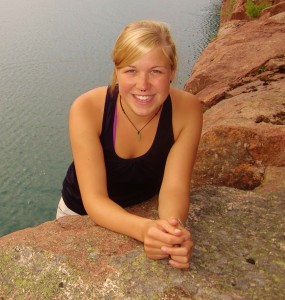 Ich bin Anke Reese (23 Jahre) und studiere seit drei Jahren Geowissenschaften in Göttingen. 2014 werde ich meinen Bachelor machen.
Ich bin Anke Reese (23 Jahre) und studiere seit drei Jahren Geowissenschaften in Göttingen. 2014 werde ich meinen Bachelor machen.
Als Geologe versucht man das „System Erde“ und vor allem die Interaktionen mit der Umwelt zu verstehen. Es gibt Geowissenschaftler, die sich dazu entscheiden für Industrie und Wirtschaft neue Ölvorkommen oder Ressourcen anderer endlicher Rohstoffe zu finden. Die Exploration von Öl hat in den meisten Fällen eher wirtschaftlichen als wissenschaftlichen/ökologischen Nutzen.
Ich möchte gern einen anderen Weg gehen und einen Beitrag zur Weiterentwicklung von nachhaltigen Lösungen für aktuelle Fragestellungen im Bereich von Atomendlagerung oder eben Erdöl-/Erdgas- Exploration leisten.
Dewegen wollt ich zunächst einen Workshop zum Thema Fracking anbieten. Aber bei meinen Recherchen zu diesem inzwischen in der Öffentlichkeit heiß diskutierten Thema, stieß ich auf gänzlich widersprüchliche Informationen verschiedener Lobbygruppen. Neutrale Informationen konnte ich kaum finden.
Till Toenjes
Ich heiße Till und stamme aus einem Dorf im Münsterland. Zurzeit studiere ich im vierten Semester den B.Sc. Ökosystemmanagement in Göttingen. Dieser Studiengang befasst sich mit den Konflikten zwischen Mensch und Umwelt im naturwissenschaftlichen Rahmen.
Ich habe nach dem Abitur ein Jahr in Südafrika gelebt und gearbeitet und durch einen dreimonatigen Aufenthalt in Ecuador einen Eindruck gewonnen wie ungerecht und einseitig Wohlstand in der Welt verteilt ist. Um etwas an diesem Ungleichgewicht zu ändern und um ein besseres Leben für die gesamte Menschheit zu ermöglichen, muss sich viel in dieser Welt ändern. Darunter fällt auch die Einflussnahme von profitgesteuerten Interessensgruppen auf (demokratische) Regierungen, auf Politiker und die breite Öffentlichkeit.
Durch diesen Workshop können wir diesem Ziel hoffentlich ein wenig näher kommen.
Environmental Lobbying – advocating for nature or manipulation?
Originally this workshop was supposed to be about hydraulic fracturing. But during research we mostly came along contradictory information from different lobbies. That is why we decided to change the topic of this workshop to “Environmental Lobbying”.
Antagonism of necessity and moral acceptability – searching for truth in the jungle of contradictory information
In political decisions, there is always a winner and a loser. One interest group wins, the other loses. To be on the winning side, lobbies try to gain influence on the decision-makers, with several different means and methods.
 This is happening every day in the local governments as well as in the European Parliament. In the automotive and textile industry, by agricultural organizations and the environmental groups. All of them inform the people and politicians only partially and according to their own interests.
This is happening every day in the local governments as well as in the European Parliament. In the automotive and textile industry, by agricultural organizations and the environmental groups. All of them inform the people and politicians only partially and according to their own interests.
A current example for environmental lobbying is the discussion on hydraulic fracturing and the extreme differences in information that are provided by the different lobbies.
 How much influence do the lobbies actually have on the Process of decision making? Are economic reasons stronger than aspects of sustainability and environmental protection? Does the economic and industrial lobby prohibit development towards a sustainable future?
How much influence do the lobbies actually have on the Process of decision making? Are economic reasons stronger than aspects of sustainability and environmental protection? Does the economic and industrial lobby prohibit development towards a sustainable future?
How much does this affect me? What can I believe in? How much influence does lobbying have on the public opinion – on my own? Who gives me the information that I can believe?
Let’s take the example of hydraulic fracturing again: It seems rather impossible to find neutral information. The topic polarizes public and politics. A factual discussion on pro and contra arguments seems impossible in lack of objective information. Can important political decisions be made on such a basis?
Workshop
In this workshop we will take a close look on the topic of lobbyism in the environmental sector:
- What is lobbyism? – Where does it start?
- Is lobbyism morally defensible, tolerable in a democratic society?
- How much influence does it really have?
- On what basis do politicians make decisions when they only get partial information?
- Do we need to empower the environmental organizations? Does environment need a stronger lobby?
- Is it justifiable for environmental organizations to practice lobbyism? Are there other ways to take influence?
- Do different lobbies use different means?
- We will deal with the theoretical background and talk to parliamentarians, lobbyists and lobbyism adversaries.
 We compare the different opinions, experience the controversy and search for a compromise or rather our own point of view. The participants become active and take part in creating the workshop! We try to find out how much truth there is in the information the different lobbies give us by comparing and discussing recent topics like hydraulic fracturing or finding a waste disposal side for atomic waste.
We compare the different opinions, experience the controversy and search for a compromise or rather our own point of view. The participants become active and take part in creating the workshop! We try to find out how much truth there is in the information the different lobbies give us by comparing and discussing recent topics like hydraulic fracturing or finding a waste disposal side for atomic waste.
We might develop a toolkit, find advice and ways to deal with lobbyism for the public, NGO’s or parliamentarians – for more transparency and more reliable information in our society.
We need You to reach this aim.
Experts & Laureates
Prof. Dr. Andreas Polk

Professor of Economics, especially Microeconomics at the Berlin School of Economics and Law. He is an expert for industrial economics and applied microeconomic research, competition and regulation in network industries (especially air transport, energy, and water), economic foundation of competition policy, lobbying and political economy.
Read more…
Nnimmo Bassey

Right Livelihood Award 2010 „…for revealing the full ecological and human horrors of oil production and for his inspired work to strengthen the environmental movement in Nigeria and globally.“
Right Livelihood Award 2010
Protector of environmental rights and poet
Nnimmo Bassey’s work as Executive Director of Environmental Rights Action in Nigeria and Chair of Friends of the Earth International has turned him into one of Africa’s leading advocates and campaigners for the environment and human rights. Indefatigably, Bassey has stood up against the practices of multinational corporations in his country and the environmental devastation they leave behind destroying the lives and ignoring the rights of the local population.
Read more…
Alyn Ware

Alyn Ware (New Zealand – Aotearoa)
Right Livelihood Award 2009
„…for his effective and creative advocacy and initiatives over two decades to further peace education and to rid the world of nuclear weapons.“
Alyn Ware is one of the world’s most effective peace workers, who has led key initiatives for peace education and nuclear abolition in New Zealand and internationally over the past 25 years. He helped draft the Peace Studies Guidelines that became part of the New Zealand school curriculum, initiated successful programmes in schools and thousands of classrooms throughout the country, and has served as an adviser to the NZ government and the UN on disarmament education. He was active in the campaign that prohibited nuclear weapons in New Zealand, before serving as the World Court Project UN Coordinator which achieved a historic ruling from the World Court on the illegality of nuclear weapons. Alyn Ware has led the efforts to implement the World Court’s decision, including drafting resolutions adopted by the UN, bringing together a group of experts to prepare a draft treaty on nuclear abolition which is now being promoted by the UN Secretary General, and engaging parliamentarians around the world through Parliamentarians for Nuclear Non-proliferation and Disarmament.
Read more…
Hosts
Anke Reese
 My Name is Anke Reese and I am 23 years old. I have been studying Geosciences at the University of Göttingen (Germany) for 3 years now and I am going to do my bachelor degree in 2014.
My Name is Anke Reese and I am 23 years old. I have been studying Geosciences at the University of Göttingen (Germany) for 3 years now and I am going to do my bachelor degree in 2014.
Geoscientists try to understand the earth’s systems – in particular they are interested in the interactions between “earth” and environment and their changes in time. Some graduates decide to support the industry e.g. by finding new oil or other unlasting resources. Exploitation of fossil fuels is economically driven rather than ecologically worthwhile. I would like to use my geological background to find more sustainable alternatives for given techniques such as disposal of nuclear waste or exploration of fossil fuels. That is why I decided to facilitate the workshop about “fracking”. On the one hand, it’s an interesting method from a scientific point of view and on the other hand – in my opinion – it’s a paradox to dig for unconventional hydrocarbons although the ambition should be producing energy from renewable resources.
Till Toenjes
My name is Till and I come from a village in Münsterland. Right now I am in the fourth semester of studying B.Sc. Ecosystem management in Göttingen. This course of studies deals with conflicts between Humanity and Environment on a scientific background.
After finishing school I worked and stayed in South Africa for a year. This time and a 3 month trip to Ecuador this year gave me an idea how unfair and partial the wealth is divided in this world. To change this imbalance and give everyone the chance to a better life, this world will have to change. One thing that has to be changed is the influence that Lobbies have on (democratic) governments, politicians and the public.
With this workshop we might come closer to this goal.
Further workshops:
